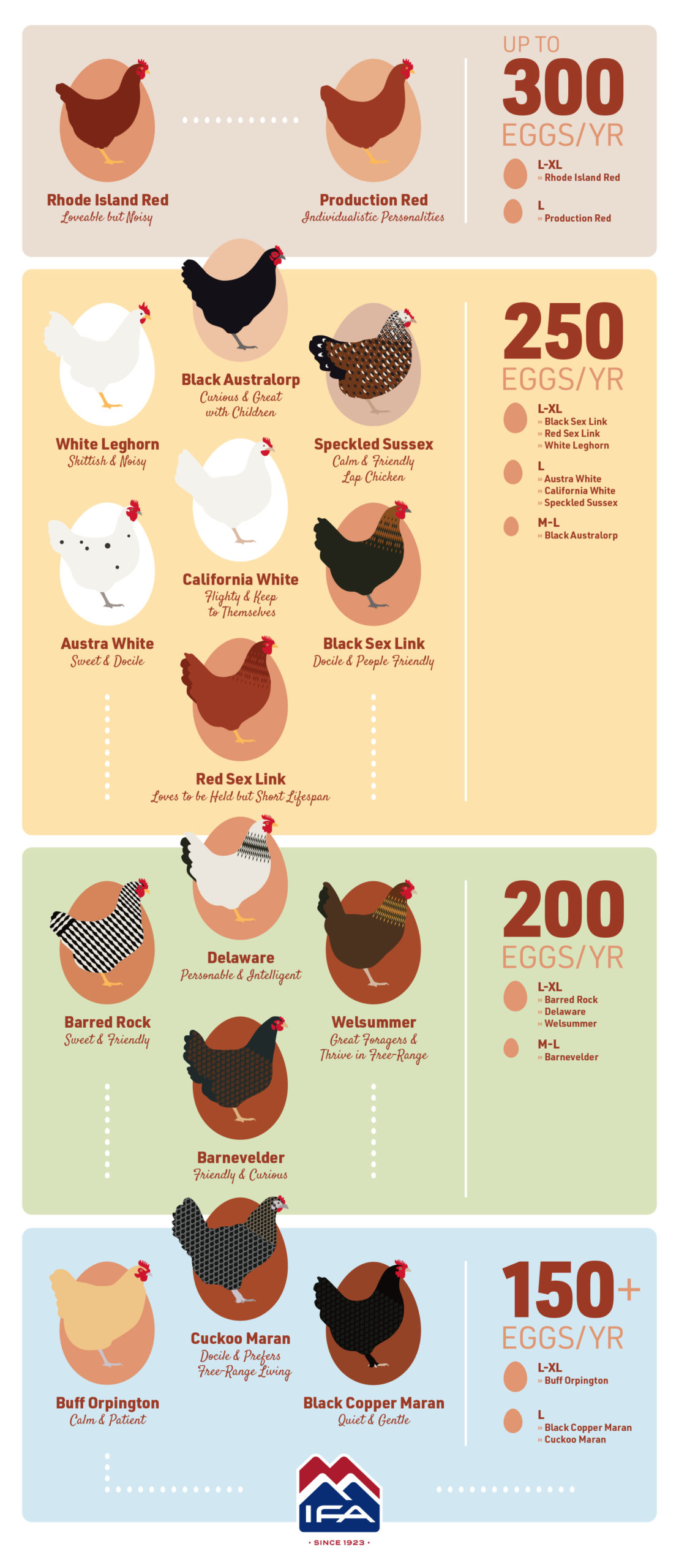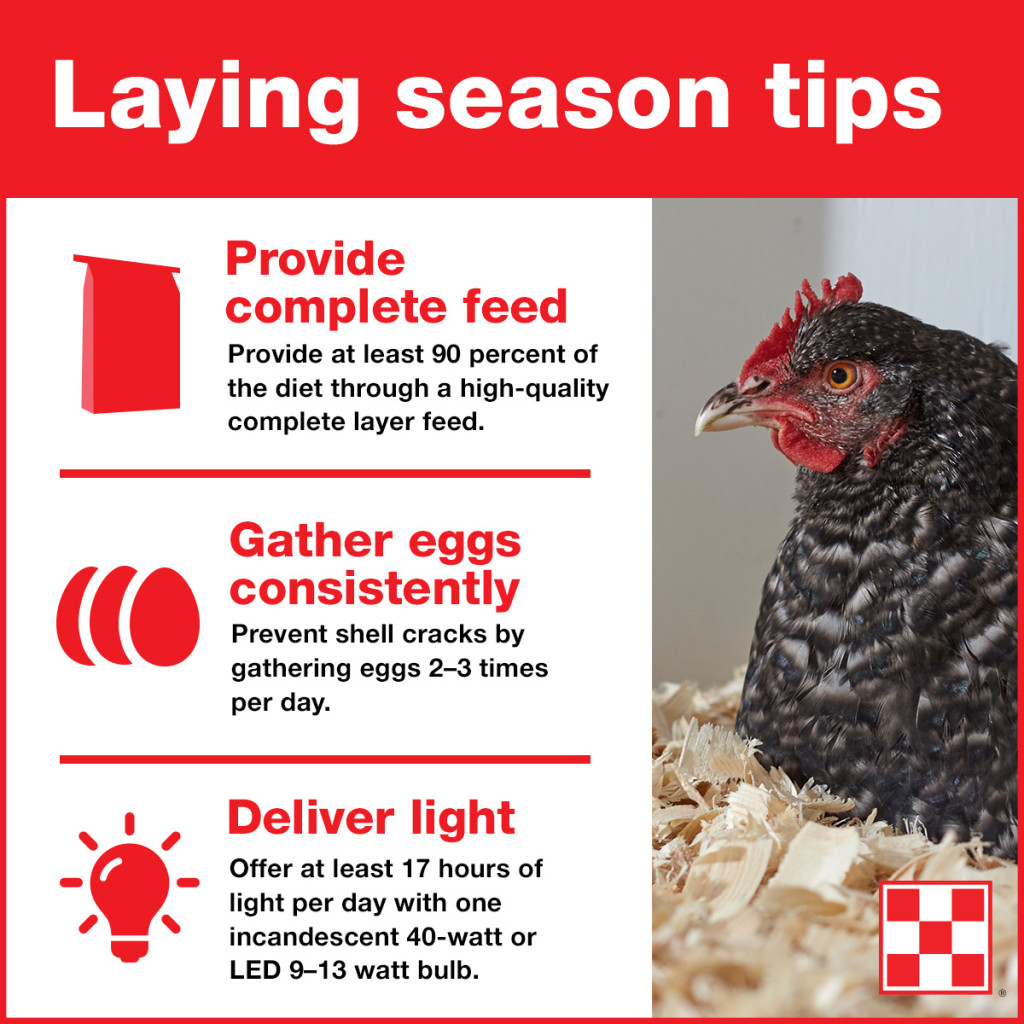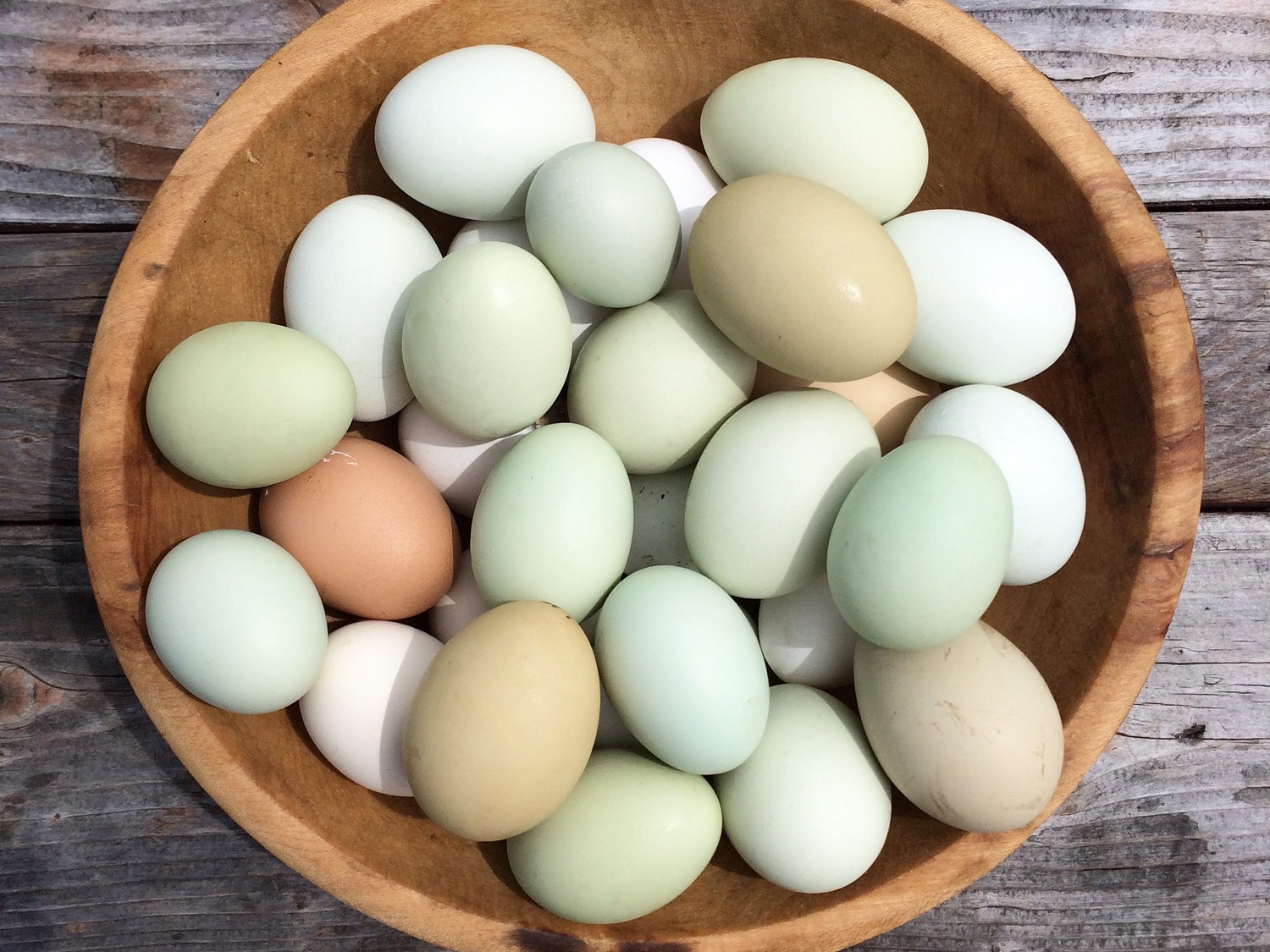If you are new to chicken husbandry and wondering “Do chickens lay eggs?”, the answer is yes! Chickens are one of the few domesticated animals that provide us with a steady supply of eggs. Not only are eggs a great source of nutrition, but the eggs laid by chickens can also be used for baking, cooking, and even hatching new chicks. This guide will provide you with all the information you need to know about chicken husbandry, including how to care for chickens, what to feed them, and how to use the eggs they lay.
What Types of Chickens Lay Eggs?

Chickens are among the most common domestic poultry animals, and they are valued for producing eggs in addition to meat. Most breeds of chickens are capable of laying eggs, although some breeds have been developed specifically for egg-laying. Breeds such as Rhode Island Red and Leghorn are among the most popular egg-laying chickens, with Rhode Island Reds being a dual-purpose breed (good for both egg-laying and meat production). Other breeds such as the Araucana and Cream Legbar have been specifically bred for egg-laying capabilities.
| Breed | Eggs Laid Per Year |
|---|---|
| Rhode Island Red | 200-300 |
| Leghorn | 300-320 |
| Araucana | 200-250 |
| Cream Legbar | 250-280 |
The rate of egg-laying also varies between breeds. For example, Rhode Island Reds lay their eggs throughout the entire year, while Leghorns lay eggs more frequently in the summer months. The amount of eggs laid per year also varies between breeds, although many breeds will lay between 200-300 eggs per year.
What Are the Benefits of Keeping Chickens?

Keeping chickens can bring a number of benefits to your home and lifestyle. Chickens are relatively easy to look after, produce high-quality eggs, and can provide a great source of entertainment.
Eggs – One of the most obvious benefits of keeping chickens is the production of eggs. Chickens typically lay an egg every day, and depending on the breed, the eggs can differ in size, colour, and shape. Not only are the eggs delicious, but they also contain many essential vitamins and minerals, making them a great addition to any diet.
Companionship – Chickens are known to be very social animals, and they can make great pets. They can become attached to their owners, and some breeds are even known to be quite affectionate. Keeping chickens can also be a great way to teach children about responsibility and animal care.
Composting – Chickens produce a lot of manure, which can be used as a great composting material. The manure is a rich source of nitrogen, phosphorus, and potassium, which are essential nutrients for plant growth.
Pest Control – Chickens are natural foragers, and they can be great for keeping away insects, slugs, and other pests from your garden. They are also known to eat up to anything.
Overall, keeping chickens can bring a lot of joy, nutrition, and entertainment to your home. With the right care and attention, chickens can be a great addition to any family.
What Is Chicken Husbandry?

Chicken husbandry is the practice of raising chickens, primarily for their eggs. It involves providing the necessary care, such as food, water, shelter, and health care, to ensure that the chickens remain healthy and productive. It also includes managing the environment, such as controlling predators, temperature, humidity, and ventilation. Chicken husbandry can be done on a small scale in backyards and on a larger scale in commercial operations. It is important to understand the basics of chicken husbandry in order to successfully raise chickens, and to ensure their health and welfare.
What Do Chickens Need to Lay Eggs?

- Sufficient Daylight: Chickens need a minimum of 14 hours of daylight per day to lay eggs. Artificial sunlight or a light bulb can be used to increase the amount of light available.
- Nutritious Diet: A balanced diet of feed, treats and kitchen scraps is essential for chickens to lay eggs. Fresh water and a calcium supplement will also help keep them healthy.
- Coop & Run: A secure coop and run will allow your chickens to roam and forage, while still providing them with a safe place to sleep and lay eggs.
- Nesting Boxes: Chickens need a comfortable and secure place to lay their eggs. Nesting boxes should be clean and kept in a quiet, dark area of the coop.
- Grit: Grit allows chickens to digest their food more effectively. It is essential for egg production and can be bought from any pet store.
- Molting: Chickens molt once a year, shedding their feathers and growing new ones. During this time, egg production can decrease or cease altogether.
- Healthy Environment: Chickens need a clean, healthy environment to produce eggs. Make sure the coop is regularly cleaned and the birds are checked for signs of illness.
Providing your chickens with the right environment, diet and nesting boxes will ensure they are healthy and are able to lay eggs. With a little bit of care and attention, you can enjoy fresh, delicious eggs from your own backyard!
How Fast Do Chickens Lay Eggs?

Chickens lay eggs at different speeds, depending on the breed and age. Generally, chickens start laying eggs from the age of 16 to 24 weeks, and lay one to two eggs a week.
Production Rates
| Age | Eggs Laid/Week |
|---|---|
| 2-6 months | 3-4 eggs/week |
| 6-9 months | 3-4 eggs/week |
| 12-18 months | 2-3 eggs/week |
| 18+ months | 1-2 eggs/week |
For the first year of a chicken’s life, they can lay up to 300 eggs. Afterward, they will lay fewer eggs each year. Some breeds of chickens, such as Leghorn chickens, are known for their high egg production. However, egg production decreases with age, so a chicken’s age should be taken into consideration when deciding how many eggs to expect in a week.
Seasonality
In addition to breed and age, the season plays a role in how fast chickens lay eggs. In the summer months, chickens lay more eggs than in the winter months. This is because of the amount of sunlight they receive and the temperature in their environment. In the winter, chickens may stop laying eggs for a few weeks and will begin again when the weather warms up.
Health
The health of a chicken plays an important role in how fast they lay eggs. If a chicken is not well-fed, is stressed, or is ill, this can affect their egg production. Chickens need a healthy diet, clean environment, and plenty of water in order to lay eggs at their highest rate.
In conclusion, chickens lay eggs at different rates depending on their age, breed, season, and health. By understanding the factors that affect a chicken’s egg production, you can ensure that your chickens produce the maximum number of eggs possible.
What Are the Different Types of Eggs?

Chicken Eggs: The majority of eggs purchased from grocery stores are chicken eggs. These eggs are laid by chickens and come in various sizes, shapes, and colors (white, brown, blue, green, spotted).
Duck Eggs: Duck eggs are bigger than chicken eggs and have a thicker, tougher shell. They have a higher content of fat, proteins, and vitamins than chicken eggs. The yolks are richer and have a more intense flavor.
Quail Eggs: Quail eggs are much smaller than chicken eggs but have a similar nutritional content. They are high in protein and minerals, and are usually served as a gourmet delicacy.
Goose Eggs: Goose eggs are the largest of all type of eggs and have a unique flavor and texture. They are high in fat and protein, and are often used in baking.
Ostrich Eggs: Ostrich eggs are the largest laid by any bird and weigh up to 3 pounds. They have a mild flavor and a creamy texture, and are often boiled and served as a savory dish.
Emu Eggs: Emu eggs are similar to ostrich eggs in size and shape, but have a sweeter and richer flavor. They are high in protein, and are often fried or boiled.
Turkey Eggs: Turkey eggs are slightly smaller than chicken eggs and have a mild flavor. They are a good source of protein and have a creamy texture.
How Do I Care for My Chickens?
Housing: Chickens need a safe, secure and comfortable place to live. A shelter or coop should be provided with adequate space, ventilation and protection from predators. The coop should be cleaned regularly and bedding should be changed often.
Feeding: Chickens need a balanced diet that includes a variety of grains, fruits, vegetables, and proteins. A commercial feed should provide most of their nutritional needs, but supplementing with treats like kitchen scraps, worms, and insects can also be beneficial.
Water: Fresh, clean water should be available at all times and changed regularly. A water fountain or waterer is ideal, as it helps keep the water clean and prevents contamination.
Health: Regular health checks should be done to ensure your chickens are healthy. Check the eyes, ears, and beak for signs of infection and parasites, and look for any lumps or bumps that may indicate a health issue.
Protection: Secure fencing should be used to protect your chickens from predators. It is also important to keep them away from wild birds and other animals that could introduce diseases to your flock.
Grooming: Chickens should be groomed regularly, including trimming their nails, beaks, and wings. Grooming also helps keep the feathers in good condition and can prevent the spread of mites and lice.
Frequently Asked Questions
How Often Do Chickens Lay Eggs?
Chickens Lay Eggs Several Times a Week. Most chickens lay eggs several times a week, typically laying one egg every 24-26 hours. This means that a single chicken can lay up to 7 eggs per week. During the peak of the laying season, chickens may lay even more eggs.
Factors Affecting Egg Laying Frequency. The frequency at which chickens lay eggs can be affected by several factors, including:
- Age – younger chickens lay fewer eggs than older chickens
- Breed – some breeds lay more eggs than others
- Season – chickens tend to lay fewer eggs in the winter months
- Diet – chickens need a balanced diet to lay eggs
- Light – chickens need at least 14 hours of light to lay eggs
Decline in Egg Laying. As chickens age, their egg-laying frequency will start to decline. On average, a chicken will lay eggs for 2-3 years before it begins to slow down. After this point, egg production will eventually stop altogether.
What do I Need to Consider When Buying Chickens?
When buying chickens, you should consider their breed, health, age, and sex. Different breeds are suited for different climates, so it is important to research the breed before purchase. Chickens should be healthy and alert, with bright eyes, smooth feathers, and no signs of infection or illness. Age is also an important factor, as young chicks require more maintenance and may not begin laying eggs right away. Lastly, you should be aware of the sex of the chickens, as only female chickens lay eggs.
Are There Different Breeds of Chickens That Lay Different Colored Eggs?
Yes, there are different breeds of chickens that lay different colored eggs. Generally, white eggs are laid by white-feathered chickens, and brown eggs are laid by red-feathered chickens. However, there are some exceptions to this rule; for example, certain breeds of white-feathered chickens can lay blue, green, or pink eggs. Additionally, some breeds of chickens, such as the Easter Egger, can lay eggs of varying shades of blue, green, and pink. Additionally, some rare breeds of chickens, such as the Ameraucana, can lay eggs of different colors at different times of the year, or even in the same clutch of eggs.
How do I know when a chicken needs medical attention?
- Unusual or extreme behavior: Chickens that are acting out of the ordinary, such as not eating, drinking, or roosting, may be ill and need medical attention.
- Unusual feathers: If your chicken has bald patches, discolored feathers, or any other irregularities, it might be a sign of illness.
- Pale or discolored combs: A pale or discolored comb on a chicken can indicate a variety of medical issues, including parasites and anemia.
- Respiratory issues: If your chicken is exhibiting signs of difficulty breathing, such as coughing, sneezing, or wheezing, it could be a sign of an infection or disease.
- Discharge from the eyes, nose, or vent: Any type of discharge from a chicken’s eyes, nose, or vent can be a sign of a serious illness or infection.
- Lameness or limping: If your chicken is limping or having difficulty walking, it could be a sign of a broken leg, an injury, or a more serious medical issue.
- Decreased egg production: If your chicken’s egg production is decreasing, it could be a sign of a medical issue or a nutritional deficiency.
If you notice any of the above signs in your chickens, it is important to seek medical attention as soon as possible. A qualified veterinarian should be able to diagnose and treat any medical issue your chicken may have.
What kind of nutrition do chickens need to stay healthy?
Chickens need a balanced diet to stay healthy and lay eggs. A diet should include grains, fruits, vegetables, and other sources of protein such as insects. Additionally, chickens need access to grit, a substance that helps them digest food, and calcium for healthy eggshells. Here is a list of essential nutrition for chickens:
- Grains: Corn, wheat, and oats are excellent sources of energy for chickens.
- Fruits and Vegetables: Fruits and vegetables provide vitamins and minerals that chickens need. Popular choices include apples, cabbage, and carrots.
- Protein: Insects, such as crickets and mealworms, are an excellent source of protein for chickens.
- Grit: Grit helps chickens to digest food. Give chickens access to small stones or sand.
- Calcium: Calcium is essential for healthy eggshells. Oyster shells or commercial poultry supplements provide a good source of calcium.
Chickens should always have access to clean, fresh water. It is also important to monitor their diet and make sure they are receiving the proper nutrition for their age and activity level.
Conclusion
Chickens are a great addition to any backyard and can provide delicious, nutritious eggs. With the right care and attention, chickens can be a rewarding and enjoyable part of any home. Knowing the basics of Chicken Husbandry, such as how to feed and water them, how to keep them safe from predators and how to keep them healthy, will help you get started on the right foot and ensure that your chickens are happy and productive.
Happy chickening!
